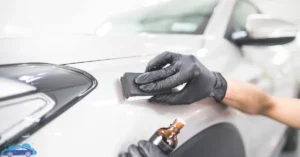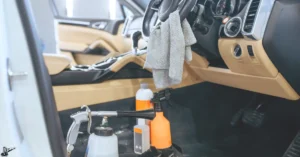Introduction
Keeping your car clean is about more than just looks—it’s about protecting it. Dirt, dust, and the weather can harm your car if you don’t wash it often enough. Wondering, “How often should I wash my car?” Let’s find out why washing your car regularly is a smart idea.
Why Regular Car Washing is Important?
Washing your car gets rid of dirt and grime that can damage the paint and cause rust. A clean car is also safer, with clear windows and mirrors making it easier to see. Plus, taking care of your car’s exterior helps it hold its value over time.
How Often Should You Wash Your Car?
How often you need to wash depends on where you live and how you drive. A good rule is to wash your car every two weeks. If you live in an area with bad weather or drive on dirty roads, you might need to wash it more.
Factors That Affect Car Washing Frequency
The Impact of Road Conditions
Driving on muddy or salty roads can harm your car’s finish. If you’re near the ocean, salty air can cause rust faster. In these cases, washing your car regularly is a must.
Seasonal Considerations (Winter, Summer, Spring, and Fall)
Every season has its challenges. Winter brings salt and snow, which can corrode metal. Summer heat can bake dirt onto the car. Spring often comes with pollen, and in fall, leaves can stick to the surface. Adjust your washing schedule based on the season.
General Guidelines for Car Washing
If you’re not sure, aim for every two weeks. Wash more often if your car gets dirty quickly due to your environment or driving conditions. Regular care is easier than dealing with damage later.
The Car Washing Process
Is It Better to Hand-Wash Your Car?
Hand-washing gives you more control and avoids the scratches that automatic car washes can cause. It takes more effort, but it’s worth it for a gentle and thorough clean.
What Do You Need to Wash Your Car?
You’ll need a bucket, car shampoo (not dish soap), a soft mitt, and a hose. Using the right tools helps protect your car’s paint.
How Should You Wash Your Car?
Rinse the car first to loosen the dirt. Wash from top to bottom so dirt doesn’t spread. Use one bucket for soapy water and another for rinsing. Dry the car with a microfiber towel to avoid water spots.
Interior Car Cleaning
Do You Need to Clean the Inside of Your Car?
Yes! A clean interior feels better and is healthier. Dust and crumbs can build up, making the inside uncomfortable and messy.
How Often Should You Clean the Interior of Your Car?
Vacuum and wipe down surfaces every month. Deep cleaning every three to six months keeps your car’s interior looking good and smelling fresh.
Waxing and Paint Protection
Do You Need to Wax Your Car?
Waxing isn’t just for looks. It adds a protective layer that shields your car from dirt, water, and sunlight. Waxing helps the paint last longer.
How Often Should You Wax Your Car?
Wax your car every three months or as needed. Some waxes last up to six months, so check your car’s finish regularly.
Seasonal Waxing Tips to Protect Your Car’s Paint
In winter, use wax that protects against salt. In summer, pick a wax that shields your car from the sun. These small steps keep your car protected all year.
FAQs
Is It Possible to Wash Your Car Too Often?
Yes, over-washing can remove protective wax. Stick to a reasonable schedule and check your car’s condition before washing again.
Can I use household cleaners on my car?
No, they’re too harsh and can ruin the paint.
What’s the best way to dry the car?
Use a microfiber towel to avoid scratches and streaks.
Conclusion
A clean car not only looks good but also lasts longer. By washing and waxing regularly, you can keep your car in great condition all year.
Wash often, protect the paint with wax, and clean the interior to keep your car looking and running its best. Taking care of your car now saves money and trouble in the future.






